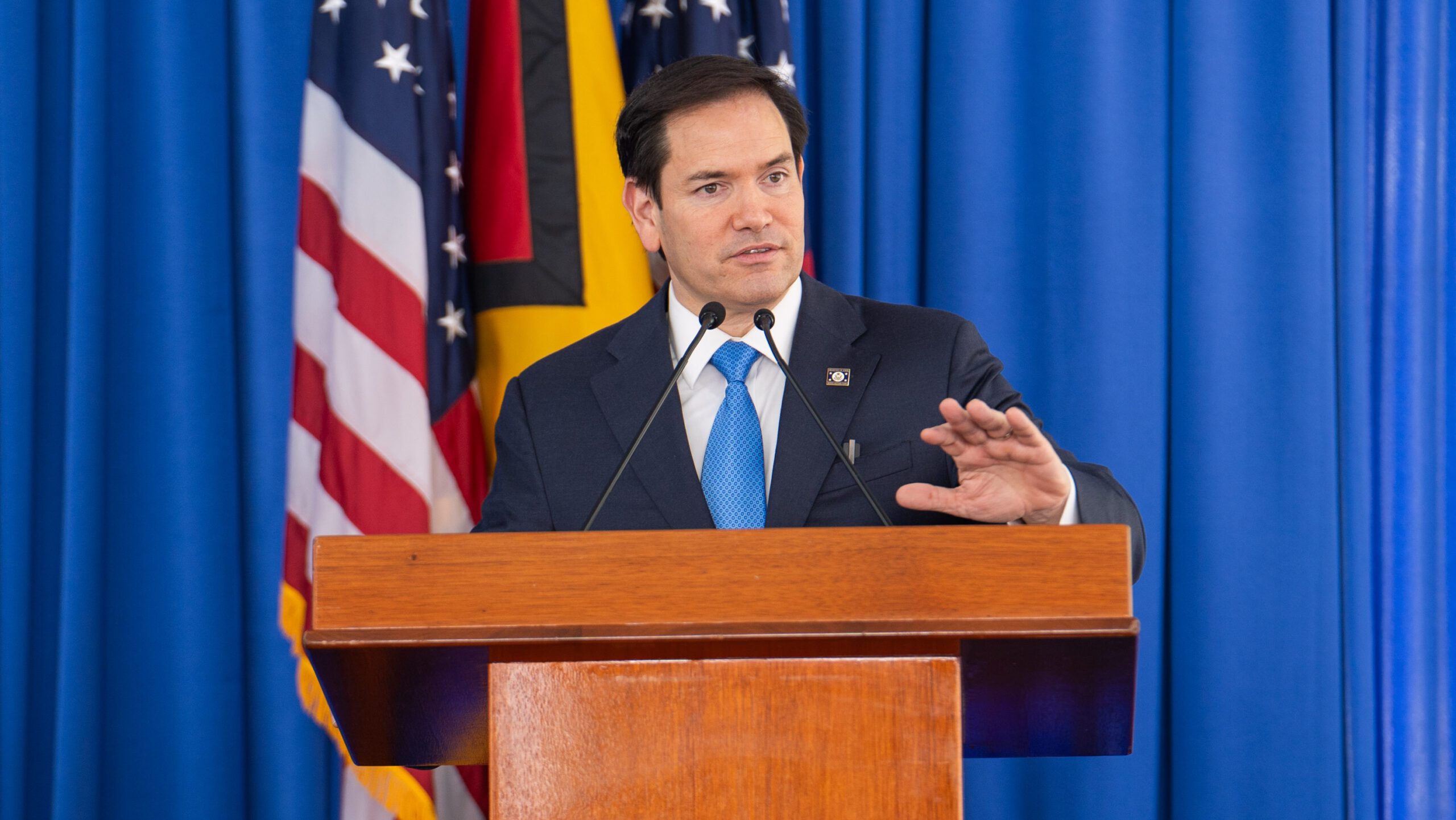The proposed tariffs on ships built in China may negatively impact Guyana and the Caribbean, a concern frequently raised with Marco Rubio, Secretary of State of the United States, during his visits to the region last week.
During a joint press conference with Guyana’s President Irfaan Ali on March 27, Rubio addressed the issue, indicating he will highlight the region’s concerns to his colleagues in Washington, DC.
“I will most certainly raise this… as a recurring issue in multiple places, that [tariffs] would have a real detrimental effect on economic development… that’s the message I’ll take back to Washington and my colleagues handling the trade portfolio and we’ll see how the president decides to proceed,” he stated.
President Ali also addressed the issue, stating, “Yes, we (he and Rubio) have discussed it and the region would have raised it also. Rubio will take this back, and we’ll see whether there can be any special initiative for the region given our specific circumstances.”
The United States’ stated aim is to counter China’s dominance in the global shipbuilding industry while also creating a demand in the market to revitalize US shipbuilding companies. While this benefits US companies, Rubio said there is a downside to having one global supplier.
“We need to have the ability to build ships in this world that don’t just come from China. I think it’s just dangerous to have one country in this world building all the ships. I assure you, we don’t want a war, but they [China] aren’t going to build ships for us if we get into trouble.”
QatarEnergy inks ‘industry’s largest single shipbuilding contract ever’ with China’s CSSC | OilNOW
The proposed tariffs on Chinese-made vessels could reach up to US$1.5 million for each entry into the United States. While this proposal addresses national security and competition concerns, it may have significant consequences for the Caribbean region’s economy.
Companies operating these vessels would face significant increases in shipping cost, which can potentially lead to higher cost to consumers, vessel rerouting which may increase shipping time, complicate logistics and changes in foreign investment patterns.
Global energy supply chains face persistent challenges in 2025 | OilNOW
For Guyana, US tariffs on Chinese vessels can significantly impact the country’s oil operations. It could mean increased shipping costs to import necessary equipment and supplies needed to support the oil and gas operations.
In February, U.S. President Donald Trump announced a proposal to impose substantial fees on Chinese-built ships entering U.S. ports.
The United States’ ExxonMobil and Hess Corporation hold 45% and 30% stake respectively in Guyana’s Stabroek Block while China’s CNOOC holds 25%.



